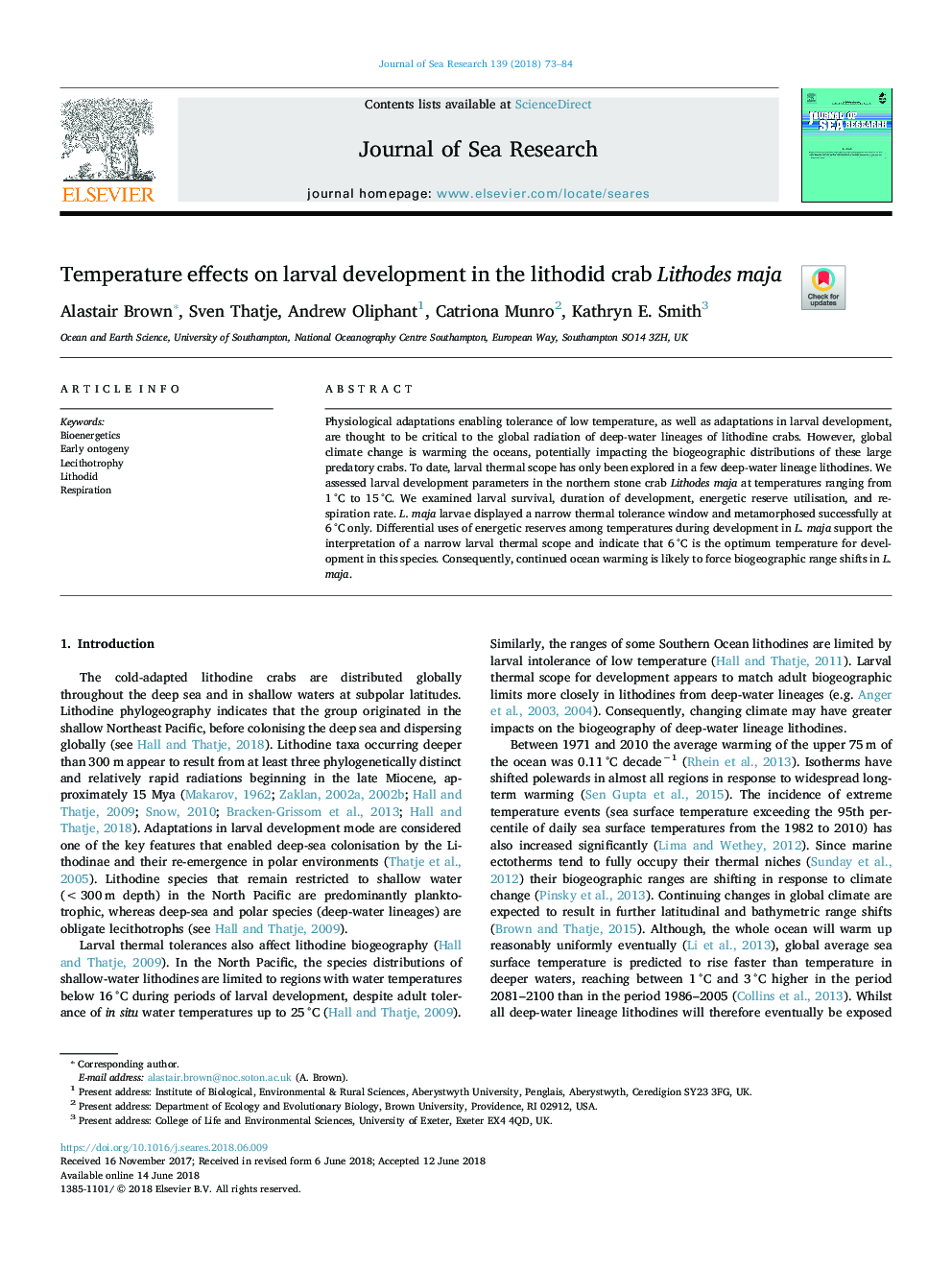| Article ID | Journal | Published Year | Pages | File Type |
|---|---|---|---|---|
| 8886100 | Journal of Sea Research | 2018 | 12 Pages |
Abstract
Physiological adaptations enabling tolerance of low temperature, as well as adaptations in larval development, are thought to be critical to the global radiation of deep-water lineages of lithodine crabs. However, global climate change is warming the oceans, potentially impacting the biogeographic distributions of these large predatory crabs. To date, larval thermal scope has only been explored in a few deep-water lineage lithodines. We assessed larval development parameters in the northern stone crab Lithodes maja at temperatures ranging from 1â¯Â°C to 15â¯Â°C. We examined larval survival, duration of development, energetic reserve utilisation, and respiration rate. L. maja larvae displayed a narrow thermal tolerance window and metamorphosed successfully at 6â¯Â°C only. Differential uses of energetic reserves among temperatures during development in L. maja support the interpretation of a narrow larval thermal scope and indicate that 6â¯Â°C is the optimum temperature for development in this species. Consequently, continued ocean warming is likely to force biogeographic range shifts in L. maja.
Related Topics
Physical Sciences and Engineering
Earth and Planetary Sciences
Oceanography
Authors
Alastair Brown, Sven Thatje, Andrew Oliphant, Catriona Munro, Kathryn E. Smith,
